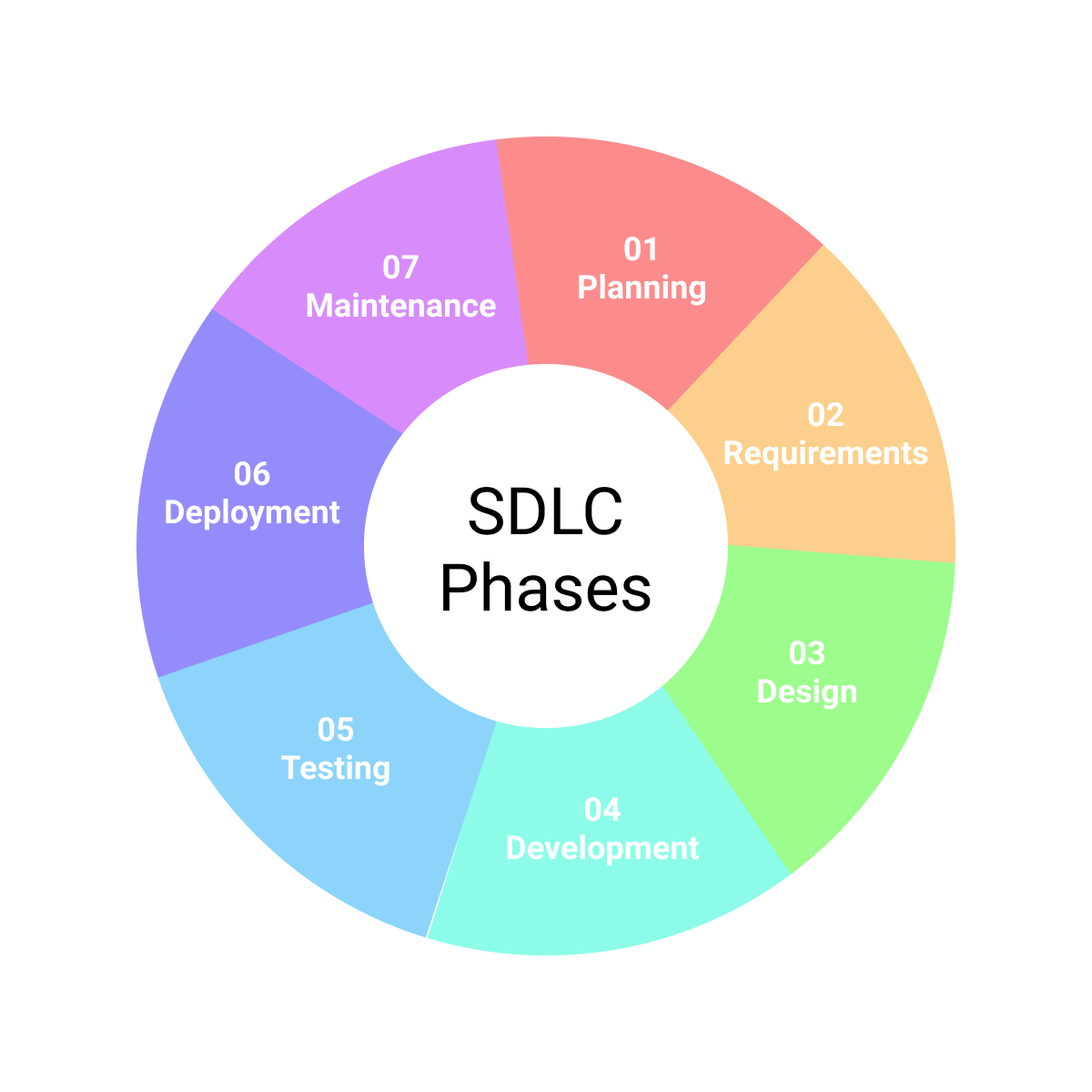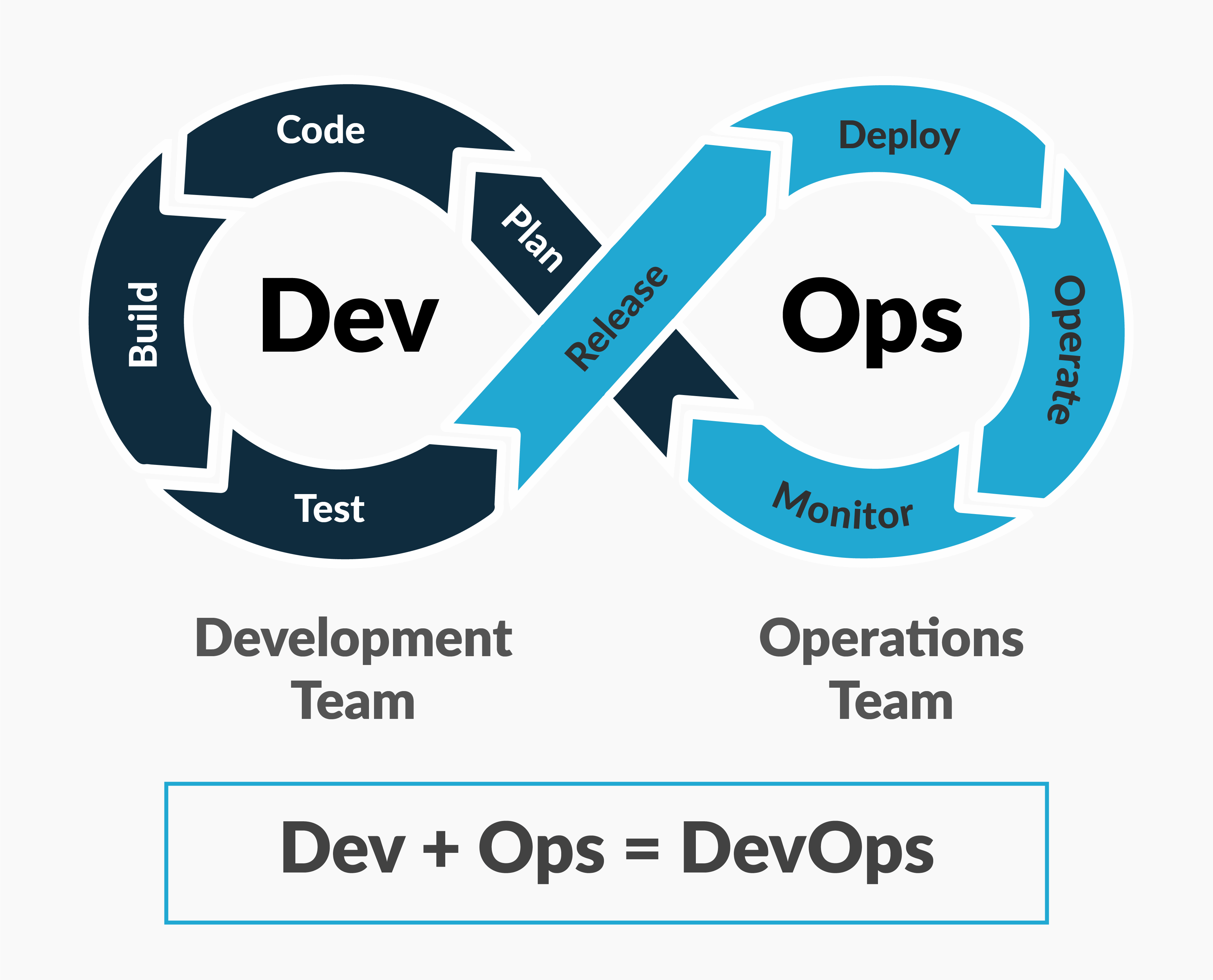Software Development Life Cycle (SDLC) and DevOps: A Guide to Building Great Software
 swetha maran
swetha maranWhen it comes to building software, having a structured approach is crucial. The Software Development Life Cycle (SDLC) is a step-by-step process that ensures software is developed efficiently, meets user needs, and functions smoothly. Let’s dive into the different phases of SDLC and explore the critical role that DevOps Engineers play in streamlining this process.

Phases of SDLC
1. Planning
📌 What’s happening: The team defines what they want to build, estimates time and cost, and determines the resources needed.
🎯 Why it’s important: A well-laid plan helps avoid confusion later and ensures clear goals from the start.
2. Requirements Analysis
📌 What’s happening: Developers and stakeholders gather information about what features the software should have.
🎯 Why it’s important: Understanding user needs ensures that the final product delivers exactly what is expected.
3. Design
📌 What’s happening: The team creates blueprints, defining how the software will look and function.
🎯 Why it’s important: A strong design ensures the software is scalable, maintainable, and efficient.
4. Development (Coding)
📌 What’s happening: Developers write the actual code that brings the software to life.
🎯 Why it’s important: High-quality code is essential for a smooth and bug-free user experience.
5. Testing
📌 What’s happening: The software is tested rigorously to catch bugs and ensure proper functionality.
🎯 Why it’s important: Early bug detection saves time and prevents costly post-release fixes.
6. Deployment
📌 What’s happening: The software is released to users via servers or downloads.
🎯 Why it’s important: Proper deployment ensures users can access and use the software without issues.
7. Maintenance
📌 What’s happening: Updates, bug fixes, and improvements are implemented as needed.
🎯 Why it’s important: Continuous maintenance ensures that the software stays relevant and functional.
DevOps

DevOps is a practice or culture adopted by organizations. It's a culture that improves the delivery of applications. For example, if example.com encounters any issues, normally it takes 10 days to fix and deliver. With DevOps, we can deliver it in hours or 1-2 days based on the bug.
DevOps is all about:
Improving deliveries by enhancing the following:
Automation
Quality
Monitoring
Testing
What is DevOps?
DevOps is a process of improving the delivery of any application by ensuring proper automation, code quality, continuous monitoring/observability, and continuous testing.
Why DevOps?
Ten years ago, we had system administrators who created server environments, server administrators who deployed the app server in server environments, and build and release engineers who deployed the code in servers, which was then tested by testers. The code was stored in a central location by developers. It was slow because everything was done manually. That's why DevOps came into play and emerged. To improve the process of delivery and its organizational efficiency in delivery.
The Role of a DevOps Engineer in SDLC
A DevOps Engineer bridges the gap between development and IT teams, making software delivery faster and more reliable. Here’s how they contribute to each phase of SDLC:
Development (Coding)
✅ What they do: Set up systems for continuous integration (CI), ensuring new code integrates smoothly.
🚀 Why it matters: Catches errors early and maintains code quality.
Testing
✅ What they do: Automate testing for fast and reliable results.
🚀 Why it matters: Ensures only bug-free code makes it to production.
Deployment
✅ What they do: Manage software releases, ensuring smooth rollouts.
🚀 Why it matters: Prevents downtime and ensures a seamless user experience.
Maintenance & Monitoring
✅ What they do: Monitor performance, fix issues, and apply updates.
🚀 Why it matters: Keeps the software running efficiently and securely.
Conclusion :

The Software Development Life Cycle ensures that software is built systematically, reducing errors and improving efficiency. DevOps Engineers play a vital role in automating processes, enhancing collaboration, and ensuring smooth deployments.
By integrating DevOps practices into SDLC, teams can deliver high-quality software faster, more reliably, and with fewer issues. Whether you’re a developer, tester, or project manager, understanding SDLC and DevOps can make a huge difference in how software is built and maintained.
Connect with me on LinkedIn : Swetha Maran
Subscribe to my newsletter
Read articles from swetha maran directly inside your inbox. Subscribe to the newsletter, and don't miss out.
Written by
